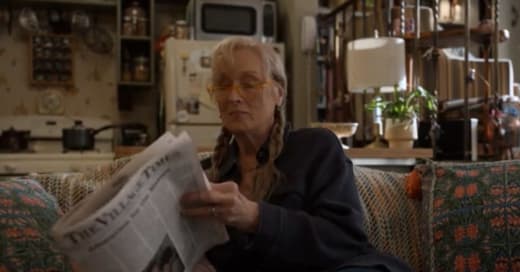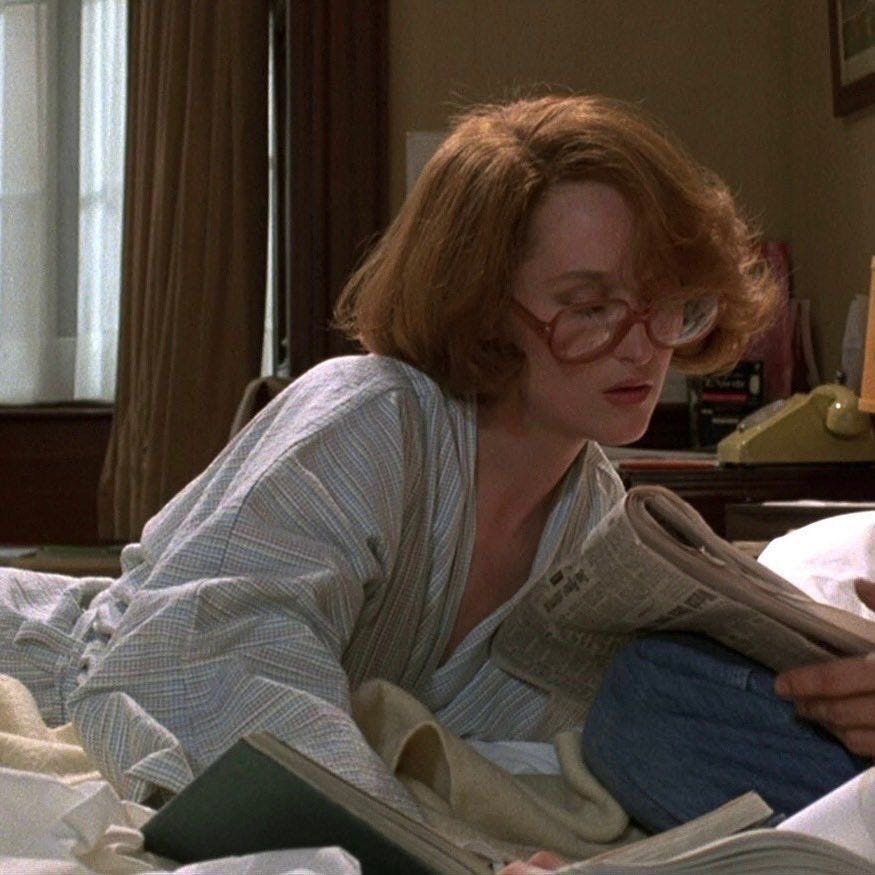there’s a specific kind of exhaustion that doesn’t come from doing too much, but from thinking too much while doing very little. not the noble, productive thinking that leads to revelation or resolution but the kind that happens quietly, in the background of your life, while you’re brushing your teeth or half-watching a show you’ve already seen, again. the kind that hums behind your eyes and keeps you mentally looping through conversations you had hours ago, decisions you already made, or feelings you can’t quite name but can definitely spiral into. overthinking has a way of tricking you into believing you’re making progress when really, you’re just rehearsing anxiety until it feels like fact. you spend hours trying to “figure it out,” only to realize that what you’ve actually done is build a mental maze with no exit.
what makes it worse is that overthinking is often culturally rewarded. we live in an era where analysis is conflated with emotional depth, where second-guessing is seen as intellectual responsibility, where being “too self-aware” has become a quiet badge of honor. overthinkers are often praised for being introspective, emotionally intelligent, articulate. and sure, we are all of those things but we are also tired. tired of filtering every experience through a mental review system. tired of trying to interpret texts like they’re code. tired of being in five emotional realities at once, unsure of which one we’re actually supposed to respond to. the real weight isn’t the thoughts themselves — it’s the friction of never being able to put them down.
what we need isn’t more clarity. it’s less residue. because the problem for most overthinkers isn’t that we don’t understand ourselves — it’s that we’re constantly surrounded by the emotional leftovers of every interaction, every decision, every imagined possibility we haven’t had the chance to clean up yet. and that’s where emotional hygiene comes in. not as a trend or a trick or another exhausting layer of self-optimization — but as a kind of inner maintenance. a way of gently clearing out the buildup before it turns into burnout.
emotional hygiene isn’t the glamorous part of wellness. it doesn’t look like a new journal or a five-step system. it’s more like brushing your emotional teeth before your brain starts chewing on the wrong things. and for people who live in their heads, it’s not optional — it’s survival. because when your default is to process everything deeply, you don’t get to be careless with what you carry. and if you don’t consciously make space to reset, your thoughts will start to multiply — not because they’re urgent, but because there’s nowhere for them to land. the absence of emotional hygiene means everything starts to feel equally loud. the work email and the passive-aggressive comment and the unresolved family dynamic and the creeping self-doubt all start crowding into the same room, and suddenly your whole life feels like something you need to fix — when really, you just haven’t cleaned up the mental mess from last week.
most of us wait too long to tidy up our emotional world. we wait until the spiral has already started, until our mood is off, until we’re crying over something that doesn’t deserve tears or snapping at someone we love for something they didn’t do. we wait until the anxiety gets physical — until our body is tight, our sleep is shallow, our appetite is gone. and even then, we don’t always have the language to link our state to the real cause: an overflow of unprocessed thinking dressed up as awareness. so we make a plan. we buy a planner. we reorganize our fridge or binge productivity content or decide to start fresh on monday. but none of that gets to the core issue, which is this: our minds are full of unresolved stories we haven’t decided whether to keep, question, or delete.
the real practice begins earlier — in the pause before the spiral. the moment you catch yourself mentally replaying a conversation that already happened, or scripting one that hasn’t. the split-second where you can feel yourself reaching for certainty like a blanket, when what you probably need is rest. emotional hygiene is recognizing the early symptoms of overstimulation and choosing not to intellectualize your way through them. it’s noticing the urge to self-diagnose, to decode, to debrief and instead, gently interrupting the loop. not to silence it, but to create room around it. so your nervous system has a chance to downshift before your thoughts convince you that you’re unsafe simply because something feels unfinished.
it’s not glamorous. it’s not romantic. it’s gentle, adult work. it looks like not chasing every thought. not assigning meaning to every mood. it looks like checking in with your body before you decide what your brain is telling the truth about. it looks like asking: am i activated, or am i just tired? do i need clarity, or do i need a walk? is this thought useful, or is it just loud? and then, choosing accordingly — not because you’ve mastered yourself, but because you’re learning how to respond to yourself without judgment.
sometimes emotional hygiene looks like writing the thought down and putting it away for 24 hours before deciding whether it deserves attention. sometimes it’s stepping outside without your phone and letting your brain remember what it feels like not to be constantly stimulated. sometimes it’s drinking water, even when you want coffee. calling a friend, even when you’d rather isolate. saying “i don’t know” and letting that be enough for now. sometimes it’s not a solution — just a shift. just a redirect. just the smallest act of choosing presence over panic.
and that’s the thing. overthinkers don’t need less thought. we need better systems for handling what we feel. we need routines that don’t just regulate us in crisis, but keep us clear enough to avoid crisis in the first place. we need rituals that return us to ourselves — not because we’re broken, but because our brains are busy places and our hearts are sensitive, and we deserve an inner life that isn’t constantly on fire.
emotional hygiene is not another thing to do perfectly. it’s not about becoming immune to spirals or forever calm or unshakably centered. it’s about cleaning up often enough that you don’t mistake the mess for your personality. it’s about catching the overwhelm before it becomes a worldview. it’s about building the quiet skill of knowing when your thoughts are valid — and when they’re just visiting. because not every story your brain tells you is one you need to live inside.
and the most freeing part is that you don’t have to fix all of it. you just have to take care of what’s in front of you. one thought at a time. one feeling at a time. one pause long enough to say, “this doesn’t need more thinking — it needs more space.”
so what should you do, exactly?
you start by catching yourself earlier. not in punishment, not in shame — just in recognition. you notice when the spiral begins. you name it without naming yourself. instead of “i’m being dramatic,” you quietly say, “i’m overwhelmed.” instead of “i need to figure this out,” you say, “i need to slow down.” you pause before the thoughts get too loud. you write them down if you must, but you resist the urge to solve them all in one sitting. you say, “this can wait. i deserve peace tonight.”
you build small, consistent rituals that remind your body it’s allowed to feel safe even when your mind is unfinished. a short walk without your phone. a glass of cold water before you over-analyze anything. a bedtime that isn’t negotiated with your anxiety. a morning check-in that isn’t about productivity, but about capacity. you return to these things not because they make you perfect — but because they make you clear. and clarity is what makes everything else manageable.
you practice seeing your overthinking not as a flaw, but as a system that needs routine maintenance. you clear the cache regularly. you notice the noise before you believe it. you create space between the thought and the story. and when you forget — because you will — you begin again. no self-lecture, no mental reboot, no 5-step healing plan. just a soft reset. just a quiet: “that’s enough for today.”
emotional hygiene isn’t something you arrive at. it’s something you practice so that when life gets full again — and it will — you have the inner clarity to meet it without drowning in the weight of your own mind. and that is enough. not to fix you. but to return you to yourself — clear, steady, and soft enough to stay.










This is everything I did not know I needed
*exhales softly* thank you